The D minor 6 chord (aka Dmin6) is a 5-note chord consisting of D, F, A, B, and C. It is derived by taking the root, minor 3rd, perfect 5th, and major 6th and minor 7 from the D major scale. This unique harmonic structure gives the chord its distinct sound and versatility.
Minor 6 chords share similarities with diminished 7 chords. In fact, Dm6 is an inversion of Bdim7. This connection may explain why Dm6 has such a mysterious and unresolved quality, making it a powerful tool in harmonic storytelling.
In this article, we will break down the theory behind Dm6, explore its musical applications, and provide chord charts to help you start incorporating it into your playing. Let’s dive in!
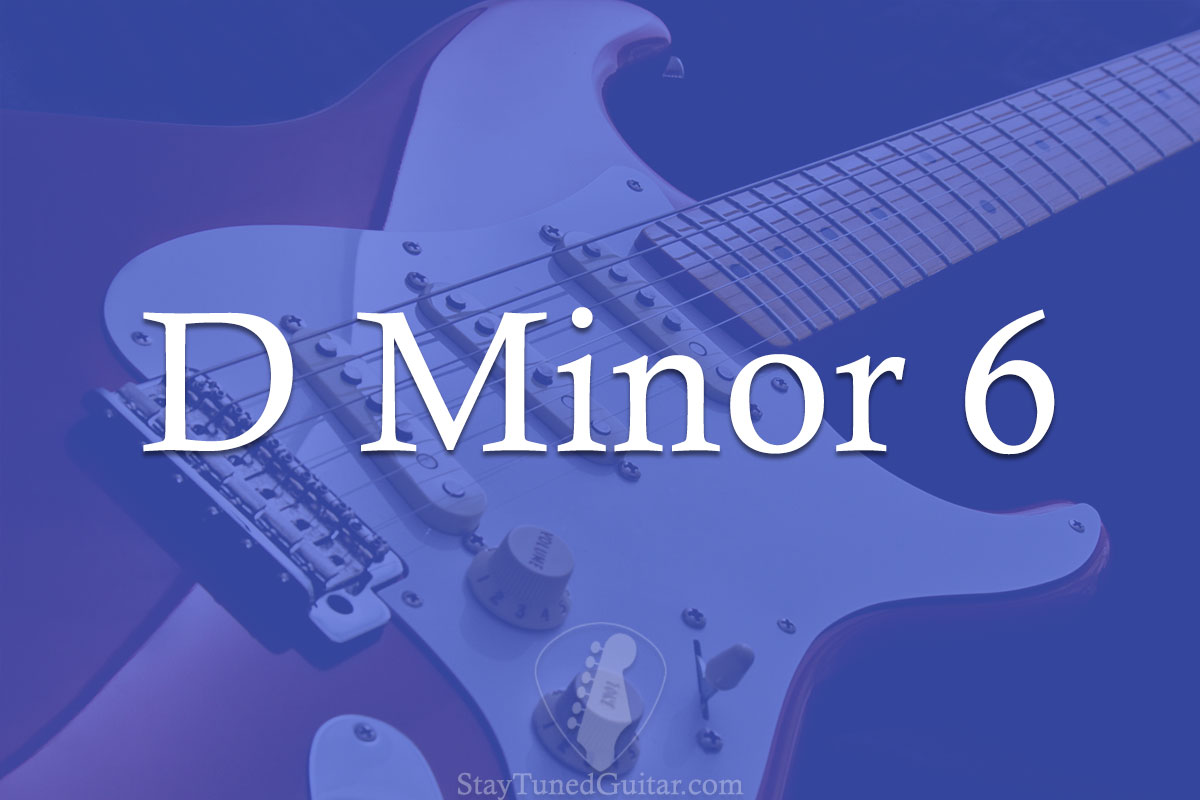
D minor 6 Essential Theory
Dmin6 contains the notes D, F, A, B and C. To construct a minor 6th chord, take the root, minor 3rd, perfect 5th, major 6th and minor 7th from a major scale.
Due to its unique harmonic spelling, minor 6 chords naturally occur as the minor ii chord in a major key or the minor iv chord in a minor key. This means you can’t substitute just any minor chord for a minor 6 chord unless you’re aiming for a specific effect.
Interestingly, Dmin6 is the Bdim7 chord in 1st inversion. Understanding this relationship opens up creative possibilities for substitution and arrangement.
By the way- you may see the 5th or 7th taken out of these chords in some contexts.
D minor 6 (Dmin6) in Context
Now that you understand the theory behind Dmin6, let’s explore how to use it in your music:
- As the ii chord in C major: Replacing a standard D minor chord with Dmin6 in the key of C major can add depth to your ii-V-I progressions. This subtle change can create a more sophisticated harmonic palette.
- As the iv chord in A minor: In A minor, Dmin6 works beautifully as the iv chord. Try it in a i-iv-v progression to bring a fresh, nuanced sound to your compositions.
- Substituting for Bdim7: Surprise your listeners by using Dmin6 in place of Bdim7. Since Dmin6 is simply Bdim7 in the 1st inversion, this substitution can add a touch of intrigue and variation to your progressions.
5 Ways to Play Dmin6
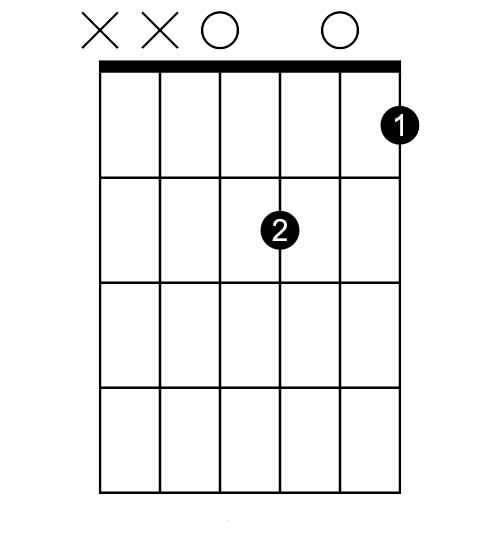
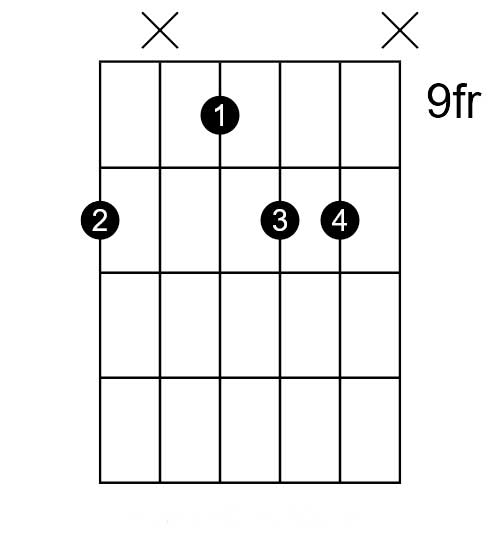
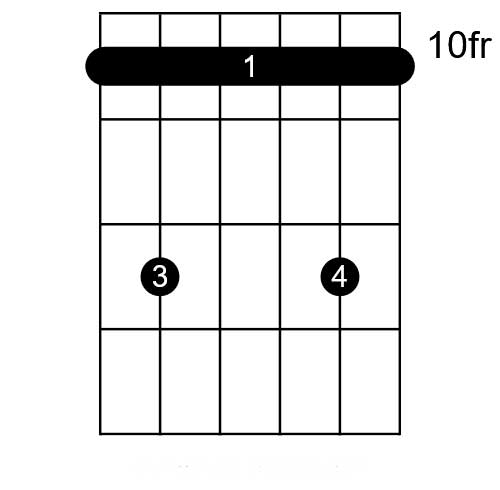
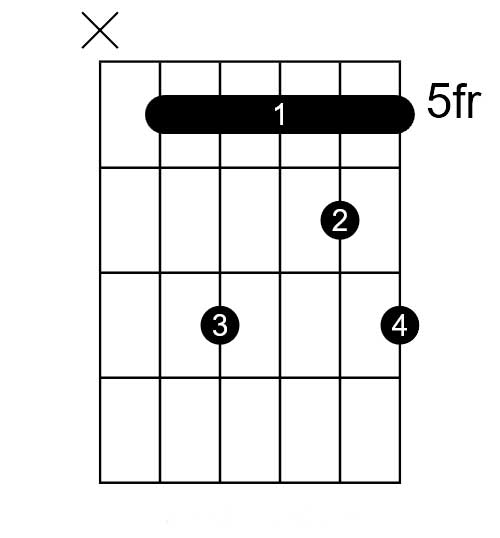
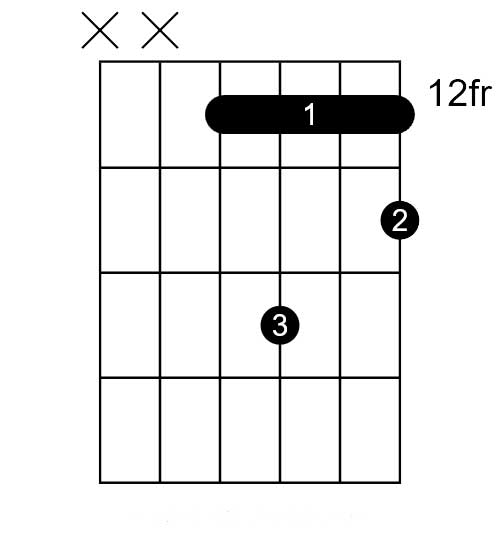
Explore Other Minor 6 Chords
Explore the captivating world of minor 6 chords and elevate your musical vocabulary. Discover the unique character of these chords, packed with depth and intrigue. From their Dorian mode roots to their versatile applications, minor 6 chords offer a rich palette of harmonic colors to enhance your compositions & improvisations.
Conclusion
Dmin6 is a fascinating chord with a rich harmonic structure and numerous applications. Whether you use it to replace traditional minor chords, add complexity to progressions, or substitute for diminished 7 chords, Dmin6 is a valuable addition to any musician’s toolkit.
By experimenting with its unique sound, you can unlock new creative possibilities in your music. So grab your instrument and start exploring the mysterious world of Dmin6 today!
